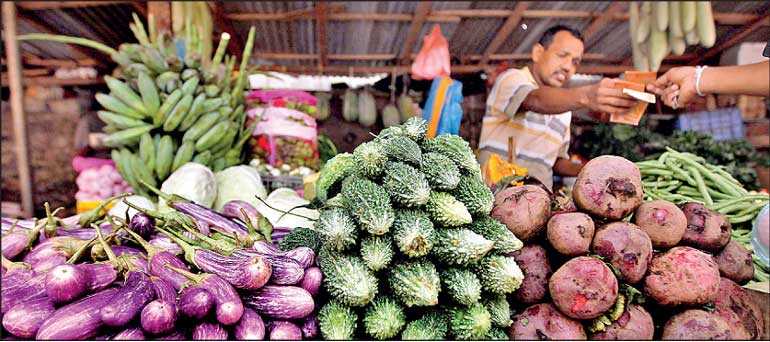Tuesday Feb 24, 2026
Tuesday Feb 24, 2026
Saturday, 7 November 2020 00:10 - - {{hitsCtrl.values.hits}}

What we should nourish is our native soil and grow without poisonous chemical adulteration, our native vegetables, fruits and herbs and learn their nutritional and disease preventing value – Pic by Shehan Gunasekara
By Suryamithra Vishwa
We see currently a major ‘fear pandemic’ alongside an ‘ignorance pandemic’. Fear of getting the COVID-19 virus and ignorance of how we could use our food, medicinal heritage, traditional wellbeing methods/philosophies to counter it.
Thankfully, some Sri Lankan Indigenous medical specialists are doing their duty to communicate to Lankans to follow strict dietary rules to boost their immunity (such as not overeating and keeping the body light), taking in Vitamin D from the sun, drinking lots of water, breathing clean air deeply so as to clear up the lungs, and are providing lists of some of the herbs and food of Sri Lanka we should regularly consume; that is part of our rich traditional heritage of wellbeing; both curative and preventive. Eating raw Karapincha leaves, Holy Basil leaves, Kohomba leaves daily are among some of the simplest of practices recommended by many native health specialists for immunity boosting, which many in Sinhala and Tamil families do daily anyway.
The point stressed by these traditional physicians is that if we are confident of our medical heritage and diet and confident in the wise and consistent use of it and refrain from filling our bodies with imported poisonous substances for mere taste and consuming chemically adulterated food, that we need fear no dubious virus.
In this page we published few weeks back several interviews with the culinary legend, Deshabandu Dr. Publis Silva, author of over 20 books on Sri Lankan food heritage, who reiterated that if Sri Lankans used to full potential its native indigenous produce, that we will be the role models of health in the globe. At 84 years young, Chef Publis as highlighted in this page earlier, has no fear of a single ailment; which means no immune impairing lifestyle diseases such as obesity, diabetes, heart ailments, kidney disease, cancer, etc., that can cause fatal reactions, especially when exposed to dubious viruses.
In my latest discussion with him just before the new lockdown for Colombo, the topic centered on indigenous yams of Sri Lanka, which are a powerhouse of nutrients. In his research he has found so far 56 native potato varieties that include Hathawariya ala (Asparagus racemosus), Manel ala, Olu Ala, Seeni Kodol. Kiri ala, Dehi Ala (Colocasia Sp. Green), Rajala (Dioscorea alata var), Innala (Solenostemon rotundifolius, Dambala Ala (Psophocarpus tetragonolobus), Katu Ala (Dioscorea Pentaphylla) and Angili Ala.
His habit of questioning the questionnaire being quite constant he asks me, before I can ask him, why we eat just one local and imported ‘global’ variety of potato, cultivated with the rampant use of chemicals, when we have all of the above.
He explains then that the answer is ignorance. We as Sri Lankans are ignorant of our own wealth. Whether we choose to be ignorant at a time of pandemics, when our health also means the health of our economy, is up to us. Therefore, instead of fear, what we should nourish is our native soil and grow without poisonous chemical adulteration, our native vegetables, fruits and herbs and learn their nutritional and disease preventing value. This has to be an exercise that begins at schools, at primary level so that we do not have another mass of people unable to face the present and the future because they are totally cut off from their past.